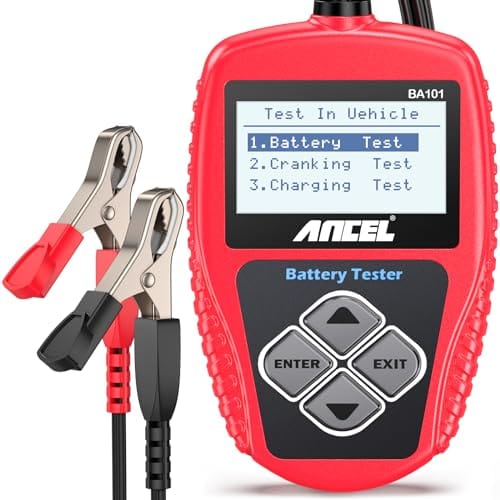Do Mechanics Fix Electrical Problems? Unveiling the Truth
Mechanics typically do not fix electrical problems in cars. Electrical issues are usually handled by auto electricians or qualified professionals with the necessary tools and expertise to diagnose and repair complex electrical problems.
However, mechanics may be involved in basic electrical maintenance tasks such as checking fuses, inspecting wiring and connections, and testing components. When it comes to more specialized electrical repairs or issues in electric cars, mechanics may need to be retrained in computer programming and other specific skills to handle the unique requirements of electric vehicles.
The Role Of Mechanics In Electrical Repairs
When it comes to electrical repairs in modern vehicles, mechanics and electricians play distinct roles. Mechanics are adept at identifying and fixing car electrical problems. They can inspect fuses, test the battery, check wiring and connections, test components, replace blown fuses, and more. However, when it comes to electric cars, mechanics may need retraining due to the complexity of electric vehicles. Electricians, on the other hand, are specialized in dealing with residential and commercial electrical systems. While mechanics focus on car maintenance and repair, electricians are experts in handling electrical installations, repairs, and maintenance for buildings and other electrical systems.
Identifying Electrical Issues In Cars
Car mechanics are equipped to diagnose and repair electrical issues in vehicles. They use various tools such as test lights and volt meters to identify symptoms and test components. Mechanics inspect fuses, wiring, connections, and grounds to pinpoint faults. When a problem is found, they replace blown fuses, recharge or replace the battery, and replace faulty components. Understanding circuits and voltage is crucial in troubleshooting car electrical problems. While mechanics can handle some electric car maintenance, the future of the auto industry is leaning towards electric vehicles, necessitating retraining for mechanics to grasp computer programming. Overall, mechanics play a vital role in identifying and rectifying car electrical issues.
The Cost Of Fixing Electrical Problems In Vehicles
Mechanics do fix electrical problems in vehicles, and the cost can vary depending on the specific issue. They diagnose the problem, inspect the wiring and connections, and test components to identify the faulty part. The repair may involve replacing fuses, batteries, or other components, with costs ranging from minor to more expensive repairs.
| The Cost of Fixing Electrical Problems in Vehicles |
| Factors Affecting Repair Expenses |
| Electrical problems in cars can be more difficult and time-consuming to diagnose than mechanical issues. It can take a skilled mechanic several hours to identify and fix the root cause of an electrical problem. Factors that affect the cost of repairing electrical problems in vehicles include the complexity of the issue, the location of the problem, and the type of vehicle. Electrical repairs in luxury or high-end vehicles may be more expensive due to the higher cost of parts. The cost of fixing electrical problems can also depend on the mechanic’s skill level and experience. When comparing the costs of electrical repairs to mechanical repairs, it’s important to note that the former can often be more expensive. |
| Comparing Costs: Electrical vs Mechanical Repairs |
| While it’s difficult to compare the costs of electrical repairs to mechanical repairs, it’s important to note that electrical problems can often take more time to diagnose and fix. Mechanical issues, such as a faulty starter or alternator, may be easier to identify and repair, resulting in lower costs. However, if the problem is more complex, such as a malfunctioning computer system, the costs of mechanical repairs may be higher than electrical repairs. Ultimately, the cost of repairing a vehicle will depend on the specific issue and the skill level of the mechanic. It’s always a good idea to get quotes from multiple mechanics to ensure that you’re getting a fair price. |
Mechanics And Electric Cars
Electric vehicles (EVs) require an understanding of computer programming more than nuts and bolts. Mechanics will need to be retrained to keep up with the future of the auto industry.
EV maintenance includes replacing transmission fluid and rotating tires, but the majority of the service on EVs is computer-related.
Diagnosing an electrical issue in a car involves checking the test light, testing the positive lead and ground at the device, and testing the positive circuit that leads to the device.
Basic Electrical Troubleshooting Techniques
When it comes to fixing electrical problems in cars, mechanics can be a great help. Basic electrical troubleshooting techniques involve using a test light and understanding circuit testing fundamentals. Identifying the problem can be done by checking symptoms, inspecting fuses, testing the battery, checking wiring and connections, testing components, replacing blown fuses, recharging or replacing the battery, replacing faulty components, and inspecting grounds. It’s important to note that electrical problems in cars can be expensive to fix, but with proper maintenance, they can be prevented. When it comes to fixing electric cars, mechanics will need to be retrained as they require an understanding of computer programming more than nuts and bolts.
| Electricians in Austin, Texas |
|---|
| Copperhead Electrical Services LLC |
| Mr. Electric of Austin |
| Terrapin Electric |
| TruTec Electric |
| Mister Sparky of Austin |
| ARS/Rescue Rooter Austin Electrical |
| Abacus Electrical |
| AiRCO Heating & Air Conditioning |
Automotive service technicians perform basic care and maintenance, repair or replace worn parts, and explain automotive problems and repairs to clients.
Common Electrical Repairs Mechanics Handle
Mechanics are adept at handling common electrical repairs in vehicles, including diagnosing and fixing issues with wiring, fuses, batteries, and components. They use diagnostic tools to identify electrical problems and make necessary repairs to ensure the vehicle’s electrical system functions properly.
Replacing fuses and batteries, fixing wiring issues, and replacing faulty components are among the common electrical repairs that mechanics handle. To identify and repair a car’s electrical problems, mechanics check the symptoms, inspect fuses, test the battery, check wiring and connections, test components, inspect grounds, and replace blown fuses, recharge or replace the battery, and replace faulty components. The process involves understanding voltage, resistance, circuits, and how different components work. Electrical problems in cars can be expensive to fix, and electric vehicles require specialized training in computer programming. Mechanics perform basic maintenance, repair or replace worn parts, and explain automotive problems and repairs to clients.
Challenges Mechanics Face With Car Electricals
Some mechanics may avoid electrical work due to the skills gap in auto electrical diagnostics. The complexity of modern car electrical systems requires specialized training that not all mechanics possess. Challenges such as computer programming and diagnosing electrical issues make it daunting for some mechanics. Additionally, the rise of electric vehicles poses a new set of challenges, as EVs require a different skill set than traditional internal combustion engine cars. Despite the future trend towards electric vehicles, it’s important for mechanics to adapt and acquire the necessary skills to thrive in the evolving automotive industry.
Finding The Right Mechanic For Electrical Issues
Finding the right mechanic for electrical issues can be crucial when it comes to fixing your car. Mechanics are skilled in diagnosing and repairing electrical problems, ensuring that your vehicle is safe and running smoothly on the road. Trusting a reliable mechanic who has expertise in electrical repairs will give you peace of mind and keep your car in top condition.
Finding a qualified mechanic to fix electrical problems in a car can be a challenge. When looking for a mechanic, it is important to ask about their qualifications and experience with electrical issues. Some questions to ask include whether they have completed any specialized training in electrical systems, how long they have been working on electrical problems, and if they have experience with your specific make and model of car. Additionally, it can be helpful to research and read reviews of local mechanics to find one with a good reputation for electrical repairs. Keep in mind that while some basic electrical issues can be relatively inexpensive to fix, more complex problems may require significant time and expertise, making them more expensive to repair. In the future, as electric cars become more common, mechanics will need to be retrained to work on these vehicles, which require a different set of skills and knowledge than traditional gas-powered cars.
Frequently Asked Questions
Are Electrical Problems In Cars Expensive To Fix?
Electrical problems in cars can vary in cost to fix. It depends on the specific issue and the extent of the damage. Some electrical repairs can be relatively inexpensive, while others may require more extensive work and be more costly.
It is best to consult with a qualified mechanic or auto electrician to diagnose and determine the exact cost of fixing the electrical problem in your car.
Do Mechanics Know How Do You Fix Electric Cars?
Mechanics are able to fix electric cars, but they may require additional training in computer programming as electric vehicles rely more on software. While some maintenance tasks are similar to traditional cars, such as tire rotation and fluid replacement, mechanics may need to be retrained to handle the unique electrical components of electric cars.
As the auto industry shifts towards electric vehicles, mechanics will need to adapt to the changing technology.
How To Diagnose An Electrical Issue In A Car?
To diagnose an electrical issue in a car, follow these steps: 1. Check the symptoms. 2. Inspect fuses. 3. Test the battery. 4. Check wiring and connections. 5. Test components. 6. Replace blown fuses. 7. Recharge or replace the battery.
8. Replace faulty components. 9. Inspect grounds. By following these steps, you can identify and repair car electrical problems.
What Do Mechanics Deal With?
Mechanics deal with various tasks such as performing basic maintenance, repairing or replacing worn parts, and addressing automotive problems. They take care of tasks like changing oil, checking fluid levels, and rotating tires. Mechanics have the expertise to diagnose and fix electrical problems in vehicles, ensuring they are in line with manufacturer and customer specifications.
They also communicate and explain repairs to clients.
Conclusion
When it comes to fixing electrical problems in cars, mechanics are equipped with the knowledge and skills to diagnose and repair these issues. They can identify faulty components, test wiring and connections, and replace blown fuses or recharge batteries. While electric vehicles may require additional training due to their complex computer programming, mechanics are adapting to the changing automotive landscape.
So, if you’re facing electrical problems with your car, don’t hesitate to consult a qualified mechanic or auto electrician who can efficiently diagnose and fix even the most intricate issues.







